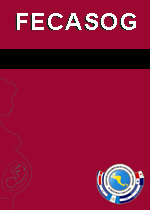Editorial
Authors
DOI:
https://doi.org/10.37980/im.journal.revcog.20211778Keywords:
editorialAbstract
The vaccination process to stop the SARS-CoV-2 pandemic is progressing by leaps and bounds in many countries, allowing us to see the light at the end of the tunnel. However, in other latitudes, whether due to fewer resources, the neglect of people with the power to make decisions and the fear of the population, the percentage of vaccination leaves much to be desired. In these modern times, where the efficacy of vaccination as the best preventive measure to reduce global morbidity and mortality should not be doubted, it is painful to see public figures lashing out at the various efforts aimed at increasing the number of people vaccinated.
The arguments used by these "authorities" lack any scientific support and are easily debatable with minimal evidence, but we live in the digital age and the internet has allowed anyone with minimal reading ability to feel capable of arguing with authorities who have dedicated his life to research. This phenomenon, known as the Dunning-Krüger effect, postulates that people without knowledge in a specific area are unaware of the limits of their ignorance. Claessens et al. published the results of their research with this underlying premise in the COVID era (Claessens et al. Open Forum Infectious Diseases, Volume 8, Issue 4, April 2021). They analyzed multiple variables related to the knowledge of 2487 subjects on issues related to COVID. As expected, those with the worst results used the internet and social networks as their primary source of information and their educational level was poor. The average perception of the level of knowledge was high and not at all related to reality.
The new generations have millions of volumes of knowledge at their fingertips, but they opt for the most accessible. Those that come to them in their moments of leisure in short texts, without a single article to support the words they emit. They take these fallacies as absolute truths and spread them like the virus they claim to know so much. It is imperative to promote educational reform at all levels, but we must start with ourselves. We have to learn to forget what we have learned and start from scratch. Accept that what is postulated by a single researcher or a single article is far from being true, verify the source of any news that reaches us and learn to critically read scientific research. As long as we do not do that, the problem will continue, since the people who should put order are victims of their own version of Dunning-Krüger and when a lie comes from the mouth of an authority, the damage it causes is worse.
Sometimes we have to accept that we don't know. That is the first step towards true knowledge.
Downloads
Published
Issue
Section
License
Copyright (c) 2021 Infomedic InternationalDerechos autoriales y de reproducibilidad. La Revista RevCog es un ente académico, sin fines de lucro, que forma parte de la Sociedad Centroamericana de Ginecología y Obstetricia. Sus publicaciones son de tipo ACCESO GRATUITO y PERMANENTE de su contenido para uso individual y académico, sin restricción. Los derechos autoriales de cada artículo son retenidos por sus autores. Al Publicar en la Revista, el autor otorga Licencia permanente, exclusiva, e irrevocable a la Sociedad para la edición del manuscrito, y otorga a la empresa editorial, Infomedic International Licencia de uso de distribución, indexación y comercial exclusiva, permanente e irrevocable de su contenido y para la generación de productos y servicios derivados del mismo.








